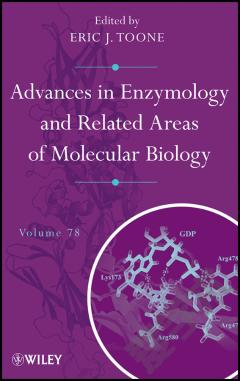Advances in Enzymology and Related Areas of Molecular Biology
This book covers important advances in enzymology, explaining the behavior of enzymes and how they can be utilized to develop novel drugs, synthesize known and novel compounds, and understand evolutionary processes. Advances in Enzymology focuses on enzymes, the primary catalysts of life processes. The explanation of the behavior of enzymes can be found via studies of their chemical mechanisms and can be utilized to develop novel drugs, synthesize known and novel compounds, and understand evolutionary processes. The transglutaminases, first described in 1957, are a large, widely-distributed family of enzymes canonically responsible for the amidation/transamidation of protein side chains. The extraordinary diversity of names associated with various enzymatic activities now recognized and aggregated as transglutaminase bears witness to the remarkable diversity of biological roles associated with the activity, including myriad human diseases.
{{comment.content}}








 京公网安备 11010802027623号
京公网安备 11010802027623号